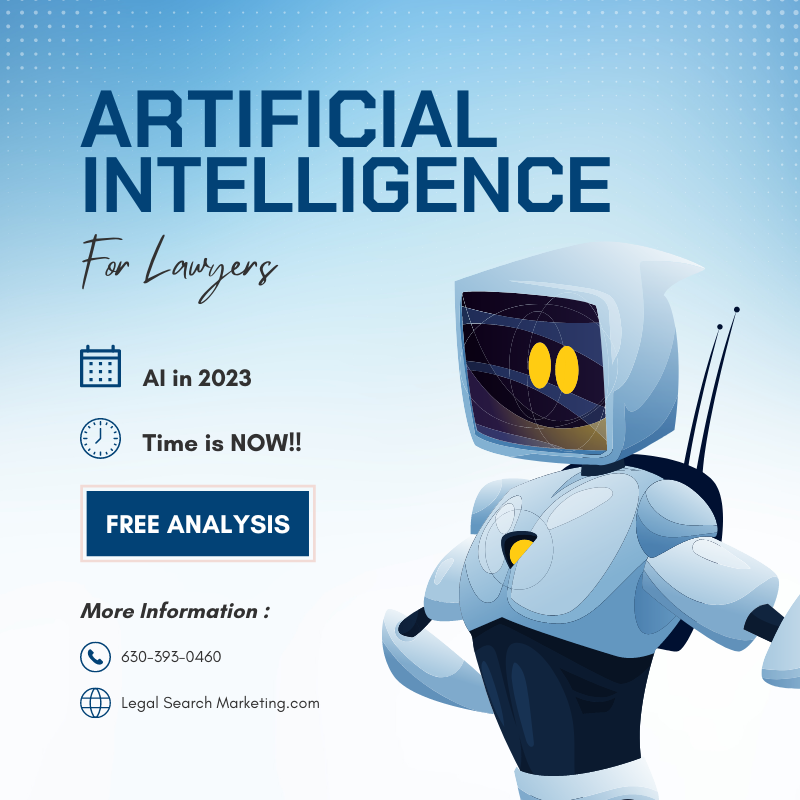Have you ever wondered how artificial intelligence (AI) is being used in the field of law? It may seem like something out of a futuristic movie, but AI is actually playing a significant role in the legal industry. In this article, we will take a detailed look at the applications of predictive analytics in law through AI.
Predictive analytics refers to the use of historical data, statistical algorithms, and machine learning techniques to predict future outcomes. In the context of law, it involves using AI to analyze vast amounts of legal documents, court cases, and other relevant data to make predictions about the outcome of legal proceedings. This information can be invaluable to lawyers and law firms as it allows them to better assess the prospects of a case, make more informed decisions, and ultimately serve their clients more effectively.
In the following paragraphs, we will delve into some specific examples of how predictive analytics is being used in different areas of law. From predicting the success of litigation, to analyzing contract language and identifying potential risks, AI is revolutionizing the way legal professionals work. So, if you’re curious to learn more about how AI is transforming the legal industry, make sure to read the full article. And don’t forget to stay tuned for a funny lawyer and AI joke at the end!
Overview of Predictive Analytics in Law
Predictive analytics is an advanced technological approach that uses historical data, statistical algorithms, and machine learning techniques to make accurate predictions about future events or outcomes. In the legal field, predictive analytics has gained significant attention and importance due to its ability to analyze vast amounts of legal data and provide valuable insights for lawyers and law firms.
Definition and explanation of predictive analytics
Predictive analytics involves the use of various statistical models and algorithms to analyze data and identify patterns, trends, and relationships. By utilizing historical data, predictive analytics can make predictions and forecasts about future events or outcomes. In the legal context, predictive analytics helps lawyers and law firms to make informed decisions, assess risks, and predict possible case outcomes.
The importance of predictive analytics in the legal field
Predictive analytics plays a crucial role in the legal field by providing lawyers and law firms with valuable insights that aid in their decision-making processes. It enables lawyers to assess the strengths and weaknesses of their cases, identify potential risks and loopholes in contracts, predict case outcomes, and streamline the entire legal research and analysis process.
With the increasing amount of legal information available, predictive analytics helps lawyers save time and effort by analyzing vast amounts of data quickly and efficiently. It allows them to focus their attention on critical aspects of their cases and make well-informed decisions based on data-driven insights.
Benefits and limitations of using predictive analytics in law
The benefits of using predictive analytics in the legal field are significant. Firstly, it enhances efficiency in legal research and analysis. By automating the process of reviewing legal documents and analyzing vast amounts of data, predictive analytics saves lawyers valuable time and resources. It allows them to focus on high-value tasks and make better use of their expertise.
Secondly, predictive analytics improves accuracy in legal research and decision-making. By analyzing historical data and legal precedents, it provides lawyers with insights and predictions about case outcomes, helping them assess risks and make informed decisions. This helps in reducing the chances of errors and improving the overall quality of legal services.
However, it is essential to acknowledge the limitations of predictive analytics in the legal field as well. Predictive analytics relies heavily on the quality and availability of historical data. In areas where limited data is available, accurate predictions may be challenging to achieve. Additionally, predictive analytics cannot replace human judgment and expertise entirely. It should be considered as a valuable tool that assists lawyers in their decision-making processes rather than a substitute for their skills and knowledge.
With a clear understanding of predictive analytics and its importance in the legal field, let’s explore the specific applications of artificial intelligence (AI) in legal research and analysis.
AI Applications in Legal Research
AI has revolutionized the legal research process by providing lawyers with intelligent tools and technologies that enhance efficiency, accuracy, and productivity. AI tools for legal research leverage natural language processing, machine learning, and data analytics to automate various tasks involved in legal research and analysis.
AI tools for legal research
AI-powered tools such as legal search engines and document review platforms help lawyers access a vast amount of legal information quickly and efficiently. These tools can analyze legal documents, statutes, regulations, and case law to provide lawyers with relevant and up-to-date information. They also employ advanced search algorithms and semantic analysis to help lawyers find specific clauses, precedents, or legal concepts within a vast database of legal documents.
Enhancing efficiency in case analysis with AI
AI applications in legal research can significantly enhance efficiency in case analysis. AI-powered tools can automatically analyze and classify documents, extract relevant information, and summarize case facts. This saves lawyers valuable time and effort, allowing them to focus on more critical aspects of their cases, such as formulating legal arguments and strategies.
Additionally, AI tools can help in identifying relevant legal precedents by analyzing vast amounts of case law and identifying similarities and patterns. This assists lawyers in building persuasive and well-founded arguments based on existing legal principles and interpretations.
Improving accuracy in legal research with AI
AI applications in legal research also contribute to improving the accuracy of legal analysis. By leveraging machine learning algorithms, these tools can identify and highlight relevant legal issues, conflicts, or inconsistencies within legal documents. They can also provide real-time updates on changes in laws and regulations, helping lawyers stay informed and up-to-date.
Moreover, AI-powered tools can analyze multiple factors and variables simultaneously, enabling lawyers to consider various scenarios and options. This assists in making well-informed decisions and reducing the chances of errors or oversight.
Moving beyond legal research, predictive analytics also finds extensive applications in contract review.

Predictive Analytics in Contract Review
Contract review is a crucial task for lawyers, and it often involves analyzing complex legal documents, identifying potential risks, and ensuring compliance with applicable laws and regulations. Predictive analytics, combined with AI technologies, can significantly streamline the contract review process and help lawyers identify potential risks and loopholes more effectively.
Utilizing AI for contract analysis
AI-powered contract analysis tools use natural language processing and machine learning techniques to analyze and extract critical information from contracts. These tools can automatically review and classify contracts, identify relevant clauses, and flag potential risks or issues. They can also standardize contract language, ensuring consistency and compliance.
Identifying potential risks and loopholes in contracts using predictive analytics
Predictive analytics enables lawyers to identify potential risks and loopholes in contracts by analyzing historical data and patterns. By examining similar contracts and case outcomes, predictive analytics can alert lawyers to potential pitfalls and provide guidance on mitigating risks or renegotiating contract terms.
This advanced technology can also assess the probability of contract breaches or the likelihood of litigation based on historical data and industry trends. By identifying potential risks upfront, lawyers can take proactive measures and draft contracts that better protect their clients’ interests.
Streamlining the contract review process with AI
AI-driven contract review tools enable lawyers to automate time-consuming tasks involved in contract analysis. These tools can flag important clauses, extract relevant information, and generate summaries or reports, minimizing the need for manual review. This not only saves significant time but also reduces the chances of errors or oversights.
Furthermore, predictive analytics can help prioritize contracts based on their level of risk, complexity, or importance. This helps lawyers allocate their resources efficiently and focus their attention on contracts that require immediate attention or further analysis.
Moving forward, let’s explore the applications of AI in legal predictions and case outcome forecasts.
AI Applications in Legal Predictions and Case Outcome Forecasts
The ability to predict case outcomes and make accurate legal predictions is a valuable tool for lawyers and law firms. By leveraging AI technologies and predictive analytics, lawyers can gain insights and assess the probability of success or failure in their cases.
Using AI for predicting case outcomes
AI technologies, combined with predictive analytics, can analyze vast amounts of data, including case law, legal precedents, and historical data, to predict the potential outcomes of legal cases. By examining similar cases and identifying patterns, predictive analytics can provide lawyers with valuable insights into the strengths and weaknesses of their arguments, helping them make informed decisions.
Analyzing past cases and legal precedents with predictive analytics
Legal research is a fundamental aspect of predicting case outcomes. AI-powered tools can analyze massive volumes of case law and legal precedents to provide lawyers with relevant information and insights. By identifying similar cases and analyzing the outcomes, AI technologies can assist lawyers in building persuasive arguments and predicting possible case outcomes.
The role of AI in predicting legal trends and developments
In addition to predicting case outcomes, AI applications can assist lawyers in predicting legal trends and developments. By analyzing vast amounts of legal data, including court decisions, legislation, and regulatory changes, AI technologies can identify emerging trends, potential shifts in legal interpretations, or changes in regulatory frameworks. This allows lawyers and law firms to stay ahead of the curve and adapt their strategies accordingly.
AI technologies also find extensive applications in facilitating due diligence and ensuring compliance.

Let’s now explore how AI applications enhance data visualization in litigation.
Predictive Analytics for Data Visualization in Litigation
Data visualization is crucial in litigation as it allows lawyers to present complex legal arguments, evidence, and insights in a more accessible and compelling manner. AI technologies and predictive analytics can assist lawyers in analyzing and visualizing complex legal data, enhancing understanding and decision-making in litigation.
Using AI to analyze and visualize complex legal data
AI-powered tools can analyze complex legal data and transform it into visual representations, such as charts, graphs, or interactive dashboards. By leveraging machine learning algorithms, these tools can identify patterns, relationships, and trends within the data, providing lawyers with valuable insights that aid in critical decision-making.
Presenting legal arguments and evidence through data visualization
Data visualization in litigation allows lawyers to present legal arguments and evidence in a more engaging and persuasive manner. By visualizing complex legal data, lawyers can simplify complex concepts or information, highlight key points, and demonstrate patterns or trends. This enhances the comprehension of the judge or jury, making it easier for them to understand and evaluate the arguments presented.
Enhancing understanding and decision-making in litigation with predictive analytics
Predictive analytics can enhance understanding and decision-making in litigation by providing lawyers with data-driven insights. By analyzing past case outcomes, legal precedents, and industry-specific data, predictive analytics can assist lawyers in assessing the strengths and weaknesses of their arguments, predicting potential outcomes, and formulating well-grounded strategies. This helps lawyers make informed decisions and improves the overall quality of legal representation.
Let’s now explore the applications of AI in legal research, specifically in automating legal research and document generation.
While predictive analytics and AI technologies offer significant benefits in the legal field, they also raise certain challenges and ethical considerations that must be addressed.
Privacy concerns and data protection in predictive analytics
Predictive analytics relies heavily on the availability and quality of data. However, the use of personal data raises privacy concerns and requires compliance with data protection regulations. Lawyers and law firms must ensure that they have obtained appropriate consent for using personal data and implement robust security measures to protect sensitive information.
Addressing biases and fairness issues in AI applications
AI technologies are susceptible to biases and fairness issues, primarily due to the data they are trained on. Biased training data can lead to biased outcomes and discriminatory practices. Lawyers and developers must take steps to address these biases by implementing robust algorithms, incorporating diverse datasets, and regularly monitoring and evaluating the performance of AI applications.
Ensuring transparency and accountability in the use of AI in law
The decisions made by AI applications in the legal field should be transparent and accountable. Lawyers and law firms must understand how AI algorithms arrive at their predictions and ensure that they are in line with legal and ethical standards. Additionally, there should be mechanisms in place to challenge or verify the decisions made by AI systems, ensuring that they do not replace human judgment but instead assist and augment it.
While these challenges and ethical considerations require careful attention, they should not overshadow the significant potential of predictive analytics and AI applications in the legal field.
Conclusion
In conclusion, predictive analytics and AI applications have revolutionized various aspects of the legal field. From enhancing legal research and analysis to improving risk assessment, contract review, and litigation strategies, AI technologies provide valuable insights and improve efficiency and accuracy in legal services.
As the legal industry continues to embrace technology and AI, it is crucial for lawyers and law firms to stay updated on the latest advancements and leverage these tools to their advantage. However, it is equally important to address the challenges and ethical considerations associated with the use of predictive analytics in law, ensuring that they are used responsibly and transparently.
The future of AI applications in the legal field looks promising, with the potential to further enhance efficiency, accuracy, and accessibility. By embracing these advancements and leveraging the power of predictive analytics, lawyers and law firms can navigate the complexities of the legal landscape with greater ease and deliver quality services to their clients.



